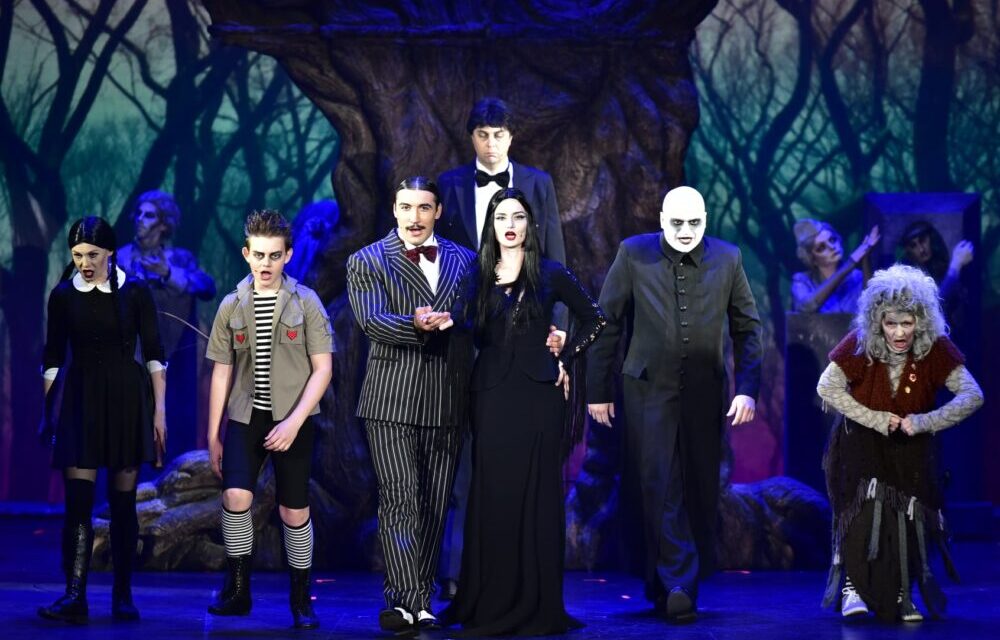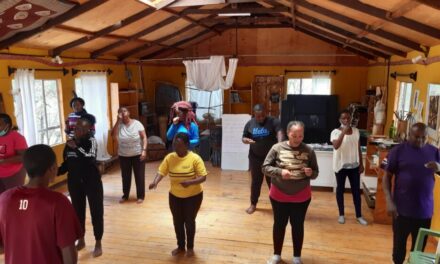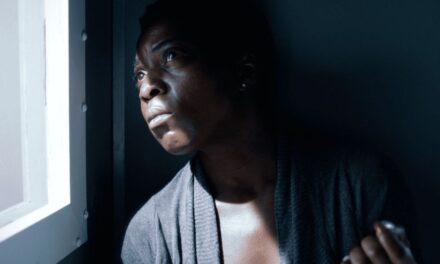The Addams Family is a musical comedy, with music and lyrics by Andrew Lippa and a book by Marshall Brickman and Rick Elice. The project based on the famous characters by Charles Addams has a long production history; it is remarkable seeing how many countries it visited during the last decade. On April 19, 2019, The Addams Family premiered in Kyiv, on the recently renovated main stage of Kyiv National Academic Operetta’s Theatre. There was a break due to COVID-19, but in 2021 the show returned to the stage and will be back again in the 2021-2022 theatrical season.
Ukrainians have seen the old and new cartoons and movies, so the audience easily picks up what’s happening from the very first seconds of the overture. The plot of the musical follows the Addams daughter, Wednesday, who falls in love with an ordinary, “normal” guy and wants to marry him. From this connection, there is a funny meeting of two families, leading to a long search for mutual understanding, seasoned with jokes and excellent catchy melodies. The common ground of all heroes is, of course, love that overcomes any stereotypes. And, “it’s full disclosure!”
All of the stories about the Addams Family have always sharply raised questions of the boundaries of normality and inclusion in society. Many of us are used to living by certain standards. However, the Addams never care about social frameworks. The only thing that really matters to them is the well-being of their own family. The Addams support each other and live according to the laws of their opposite reality, but we see that incredible love and understanding rule in their family.
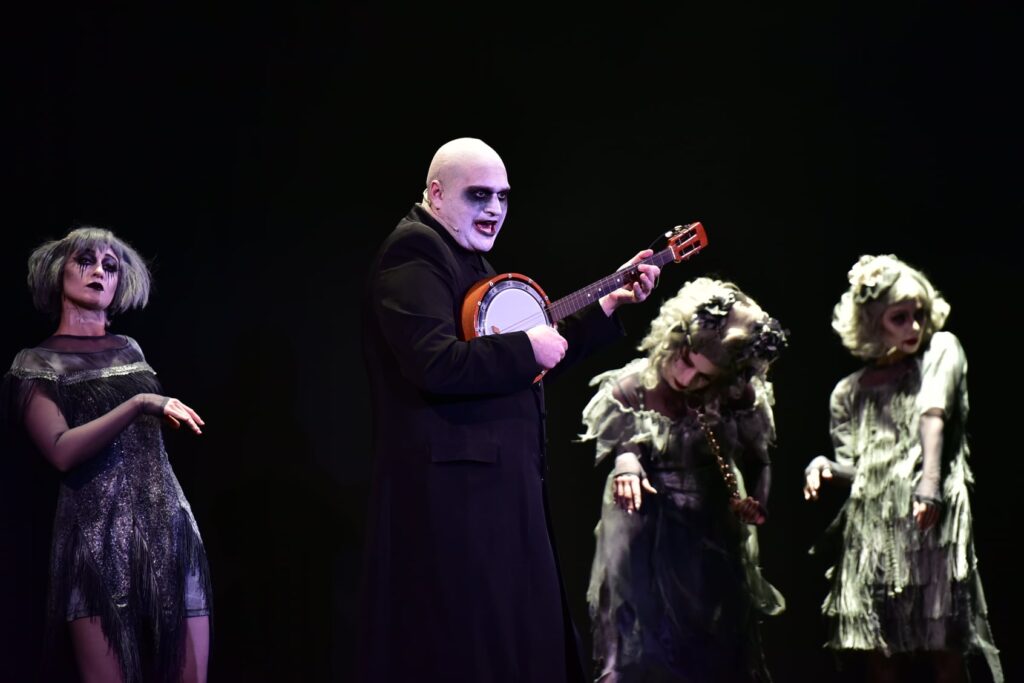
Uncle Fester (Kiryl Bascovskiy). Photo by Oksana Lazepko.
Everyday life, jokes and habits of the Addams often seem shocking to us, but at the same time they are so attractive and irresistible. They are genuine in their extreme boldness, and this cannot but bring a sincere smile to the audience’s faces and a warm response. The Addams are not just NOT afraid, they joyfully run to face all fears, bringing fire on themselves:
When you face your nightmares
Then you’ll know what’s real.
This is a necessary prism that helps them to look deeper, sharing their own feelings and desires openly and not accepting hypocrisy from anyone.
The biggest fear for “normal people” is to suddenly seem abnormal in the public eye, to be branded as weird or to become the subject of gossip. People trying to hide themselves behind glamorous facades and keeping silent around issues which lead to even bigger problems to the point of explosion is portrayed so well by our heroes.
We are a little scared watching the funny, torture experiments by Pugsley and Wednesday, who stretches his limbs in different directions. But for some reason, we are not afraid to look at Alice, who has been unhappy in her marriage for many years. However, if you ask, who actually feels more pain? Who is scarier, the terrible-looking Uncle Fester who is tenderly in love with the planet, or a perfectly dressed up, gentleman Mal (Alice’s husband) whose heart is stern and indifferent?
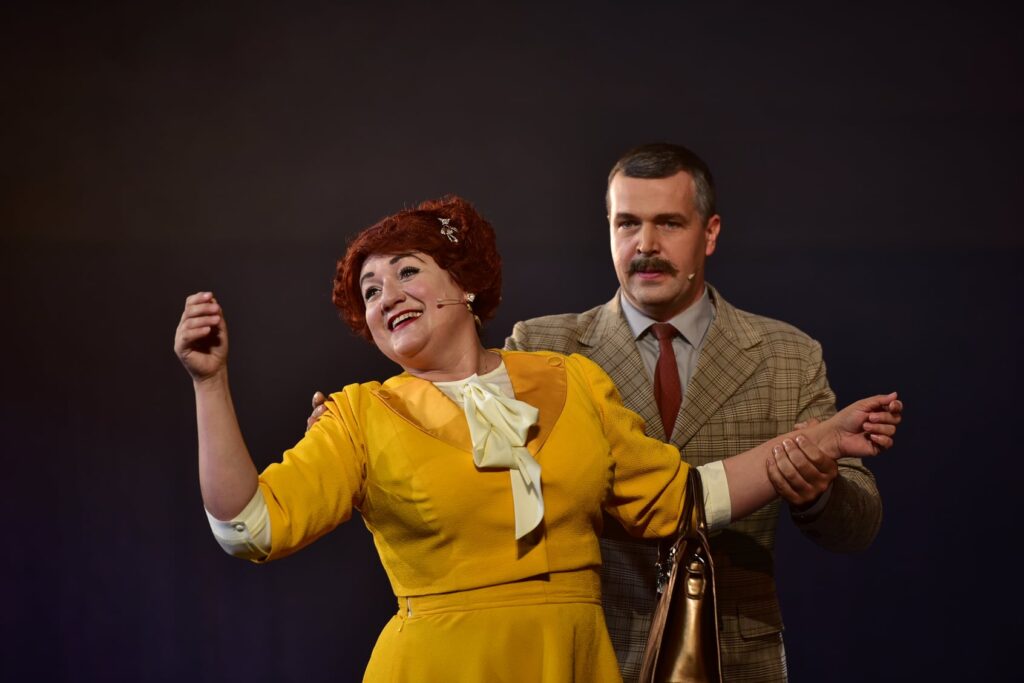
Mal and Alice (Valentyn Kotenko and Anna Dovbnya). Photo by Oksana Lazepko.
So, “Normal is an illusion. What is normal for the spider is chaos for the fly,” declares Morticia Addams, completely overturning the idea of what’s normal. It doesn’t matter how strange you look in the eyes of others, it’s important whether you know how to love and be sincere to yourself and those close to you. This is the main and most important message in the show.
When you’re an Addams
The standard answers don’t apply
When you’re an Addams
You do what Addams do or Die!
Though they honor the spirits of their ancestors and are respectful of family traditions, they do not live in a routine. They are crazy and thirsty for adventures. His love and desire to be with Wednesday drives Lucas out of his mind. He lets himself be spontaneous and improvise within his well-balanced and measured life.
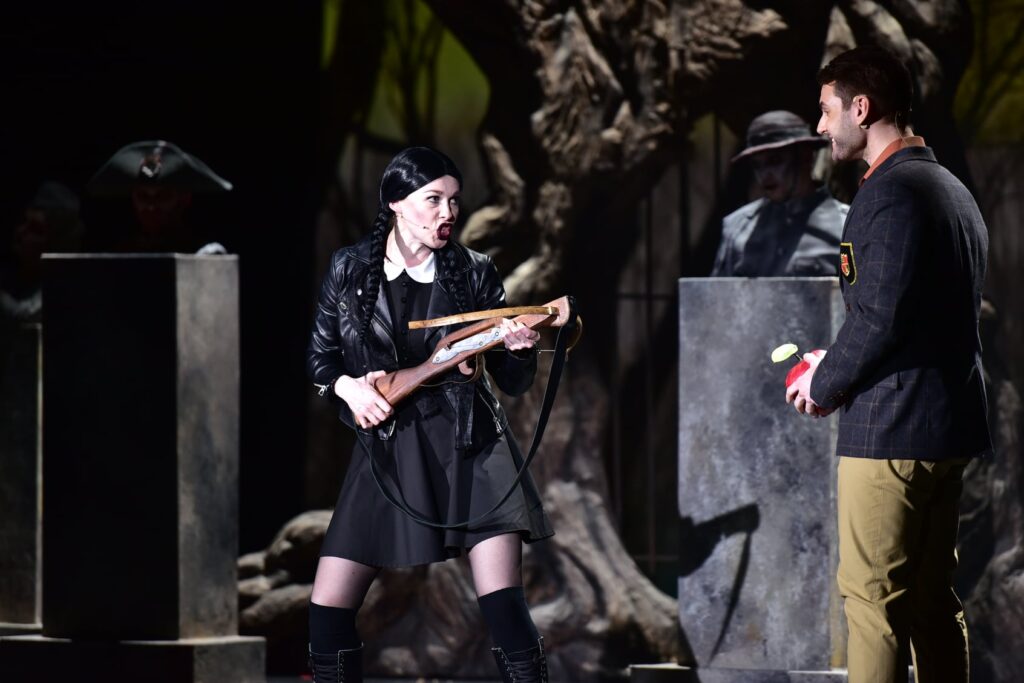
Lucas and Wednesday (Maxim Gara and Tetiana Didukh). Photo by Oksana Lazepko.
Also, all the flamenco music in the scenes between Gomez and Morticia are invariably accompanied by the audience’s great support. That’s where the real passion is! The large-scale dinner scene with two families at the end of Act I is spectacular, and the climax is an amazing aria by Alice who, under the influence of the potion, tells everybody all the details of her sad family life.
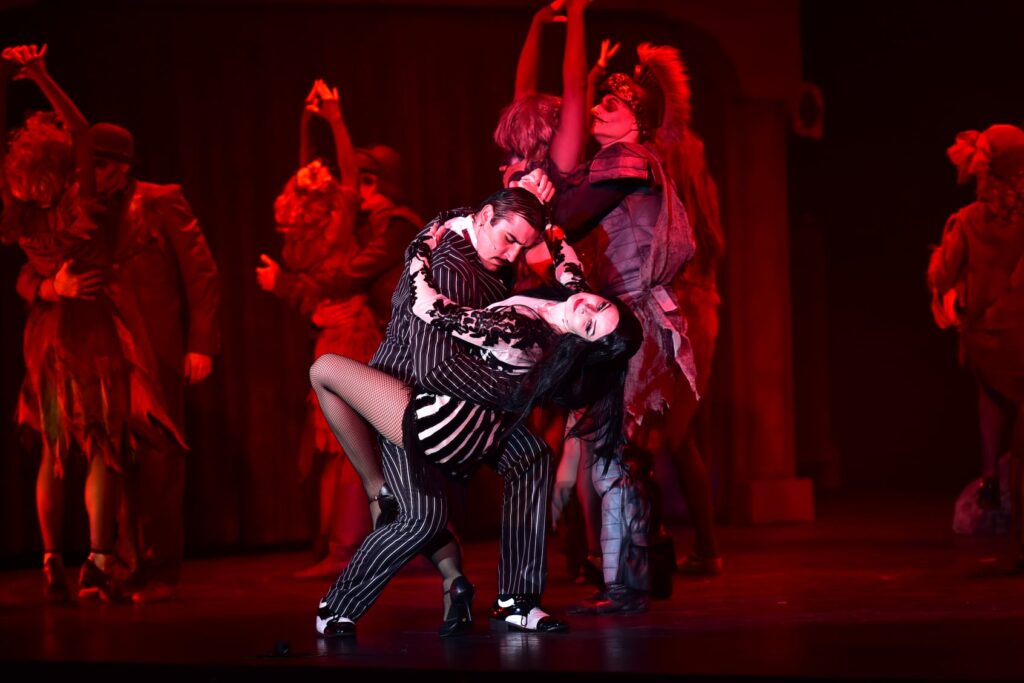
Gomez and Morticia (Yevhen Prudnyk and Maryana Bodnar). Photo by Oksana Lazepko.
The ovation from the audience during the bows speaks not only of the characters’ worldwide popularity, but of the talent of the cast who convey all the specific irony in the plot in such a beautiful way. Powerful vocals, music and mystical set design leave an excellent aftertaste and, more importantly, the desire to come back again with friends.
The psychophysics of the Ukrainian theater was taken into account when creating the project. Therefore, special attention was paid to the translation of dialogues. They were adapted to the Ukrainian mentality, character and humor.
— comments the production Bohdan Strutynskyi, General Director and Artistic Director of the Kyiv National Academic Operetta’s Theatre.
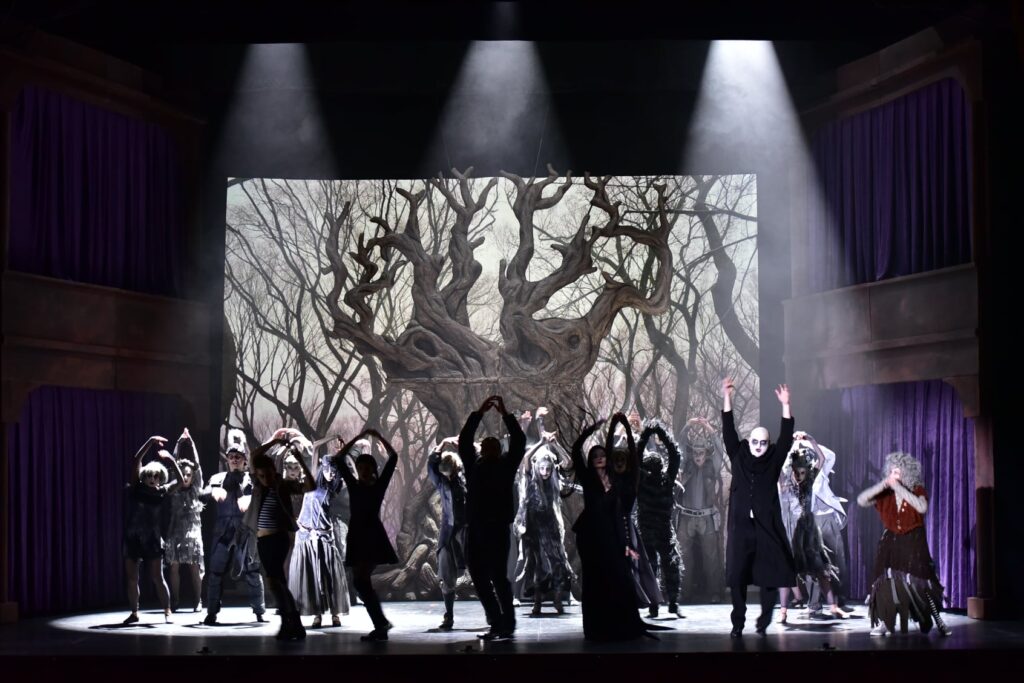
Musical moment. Photo by Oksana Lazepko.
The play was translated into Ukrainian by Yana Ivanytska and directed by a Lithuanian production team including director Kestutis Stasys Yakshtas, art director Gintaras Makarevichus and choreographer Dainius Bervingis. The conductor and producer is Oksana Madarash. The cast include: Gomez by Serhiy Yatsuk, Yevhen Prudnyk; Morticia by Asya Sereda-Goldun, Oksana Prasolova, Maryana Bodnar; Uncle Fester by Kiryl Bascovskiy, Dmitry Grishin; Grandmother by Valentyna Donchenko-Butkovskaya, Zoya Kravchenko, Oksana Mirson; Wednesday by Tetiana Didukh, Anna Koval, Olga Fedorenko; Pugsley by Dmytro Vivchariuk, Demian Shyian; Lurch by Igor Tikhonov, Alexander Kharlamov; Mol by Sergiy Avdeev, Valentyn Kotenko; Alice by Iryna Lapina, Lyubov Dobronozhenko, Anna Dovbnya; Lucas by Dmitry Voronov, Maxim Gara, Oleksiy Kirillov.
This post was written by the author in their personal capacity.The opinions expressed in this article are the author’s own and do not reflect the view of The Theatre Times, their staff or collaborators.
This post was written by Tanya Vasylkevych.
The views expressed here belong to the author and do not necessarily reflect our views and opinions.

